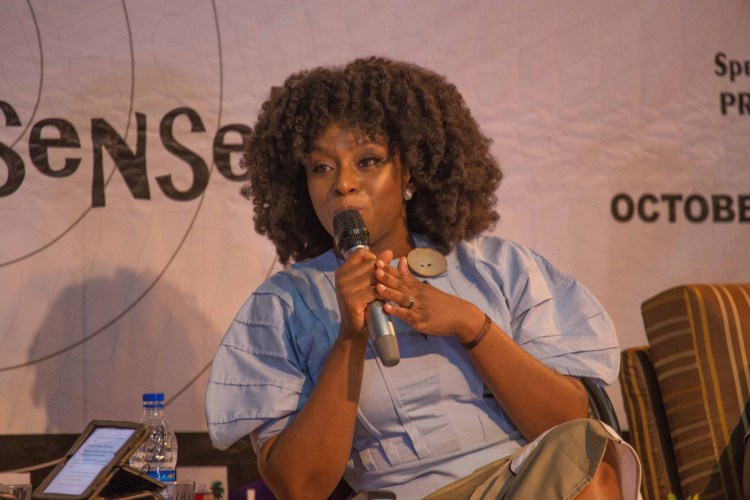During a United Nations virtual forum on sexual and gender-based violence on Wednesday, Adichie said that there’s a global epidemic of a sense of male entitlement to women bodies.
The event, held via video links, was tagged “Combating and preventing sexual and gender-based violence in humanitarian crises”.
Citing recent cases in Nigeria, Adichie decried the pervasiveness of rape and other forms of sexual assault on women and girls in society.
Read Also: Adichie Is First Nigerian, Youngest African To Get UN Award
She also lamented the stigmatisation of rape victims, blaming it on cultural bias against the female.
“I think that there is an epidemic of male entitlement towards female bodies. It’s a global epidemic, and it’s something we need to address.
“What I have noticed in reactions to these horrific cases is that there is a language around rape and sexual assault on women that we really need to think and talk about.
“We live in a culture that diminishes women, and so both men and women participate in that culture’’.
She said that there had been so many disappointing views from Nigerians asking questions like: ‘what was the girl wearing when she was raped?’
According to her, this is as if, what she was wearing or doing, justifies her being raped.
The award-winning novelist also drew attention to lack of sex education and questioned the language of discussing issues around rape and sexual assault.
“What language do we give girls to talk about their bodies? What language do we give boys to talk about what girls and women represent in our societies?
“When I was growing up, I don’t think I had the language to talk about my experience had I been a victim of sexual assault.
“The word for vagina in my language, Igbo, is loaded with shame and if you are a good girl you are not supposed to know that word,’’ she said.
“So, it matters, how we teach girls to talk about these things because if they don’t have the language they don’t feel equipped to talk about what is happening to them.’’
Adichie said that society should find ways to make women and girls sharing their experience both “ordinary and heroic”.
She stressed the need for boys to be taught at an early age that they are not entitled to women’s bodies and that girls, on their part, should be taught that their bodies belong to themselves only.
AFRICA TODAY NEWS, NEW YORK

